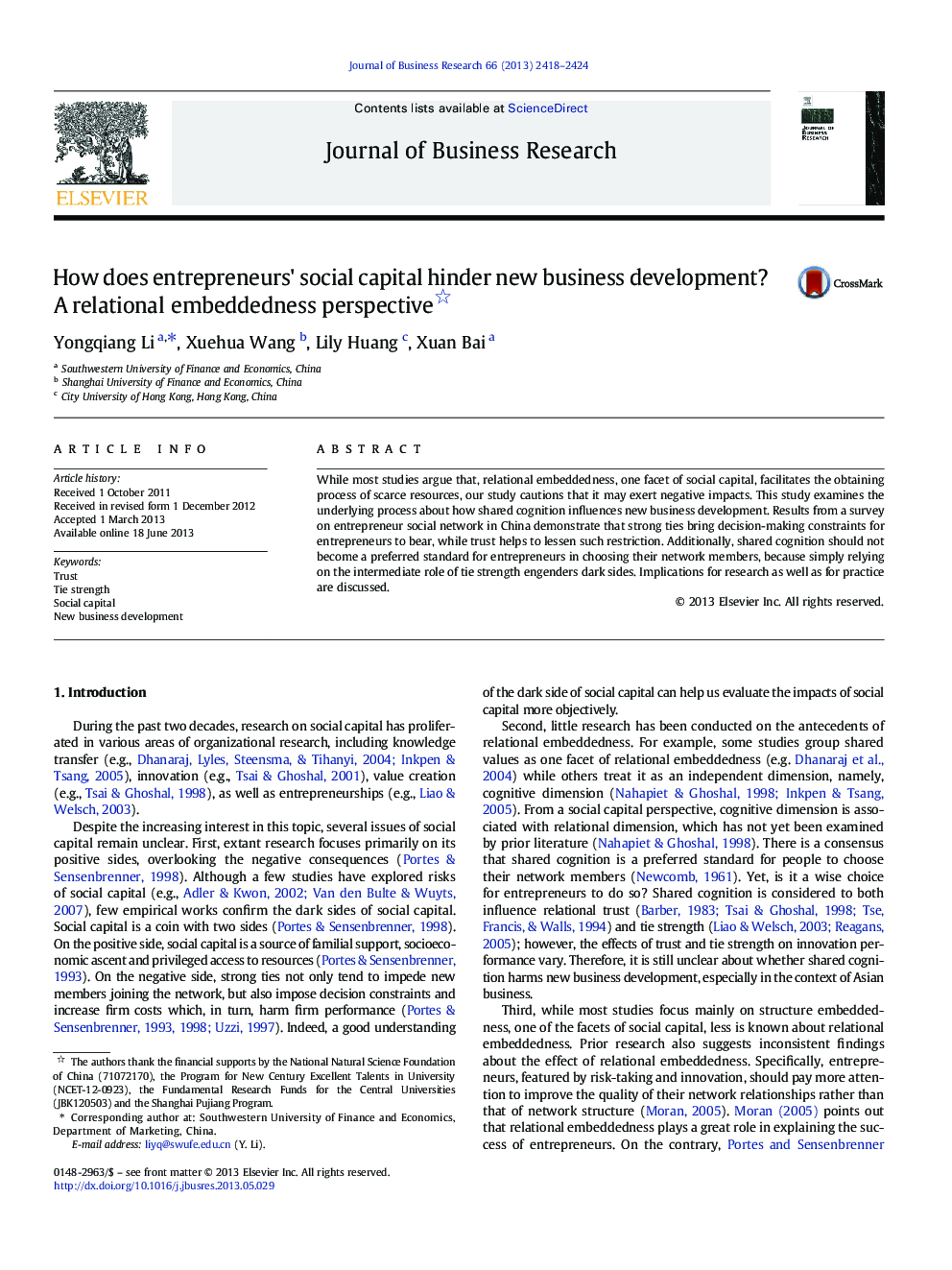| Article ID | Journal | Published Year | Pages | File Type |
|---|---|---|---|---|
| 1017361 | Journal of Business Research | 2013 | 7 Pages |
While most studies argue that, relational embeddedness, one facet of social capital, facilitates the obtaining process of scarce resources, our study cautions that it may exert negative impacts. This study examines the underlying process about how shared cognition influences new business development. Results from a survey on entrepreneur social network in China demonstrate that strong ties bring decision-making constraints for entrepreneurs to bear, while trust helps to lessen such restriction. Additionally, shared cognition should not become a preferred standard for entrepreneurs in choosing their network members, because simply relying on the intermediate role of tie strength engenders dark sides. Implications for research as well as for practice are discussed.
